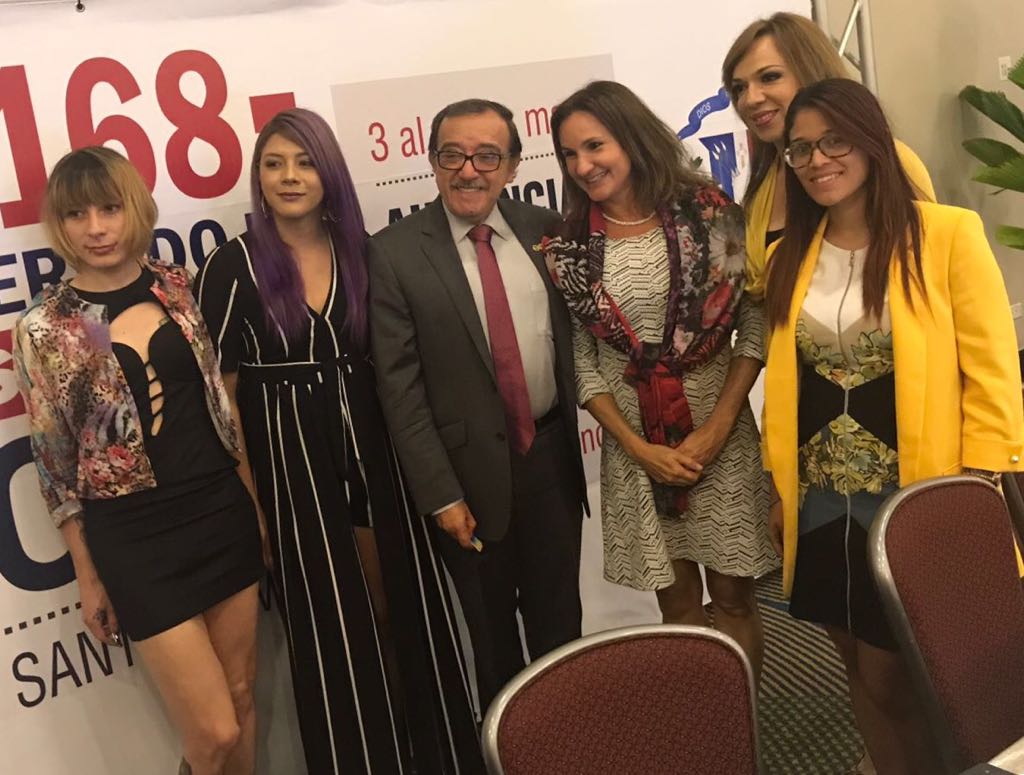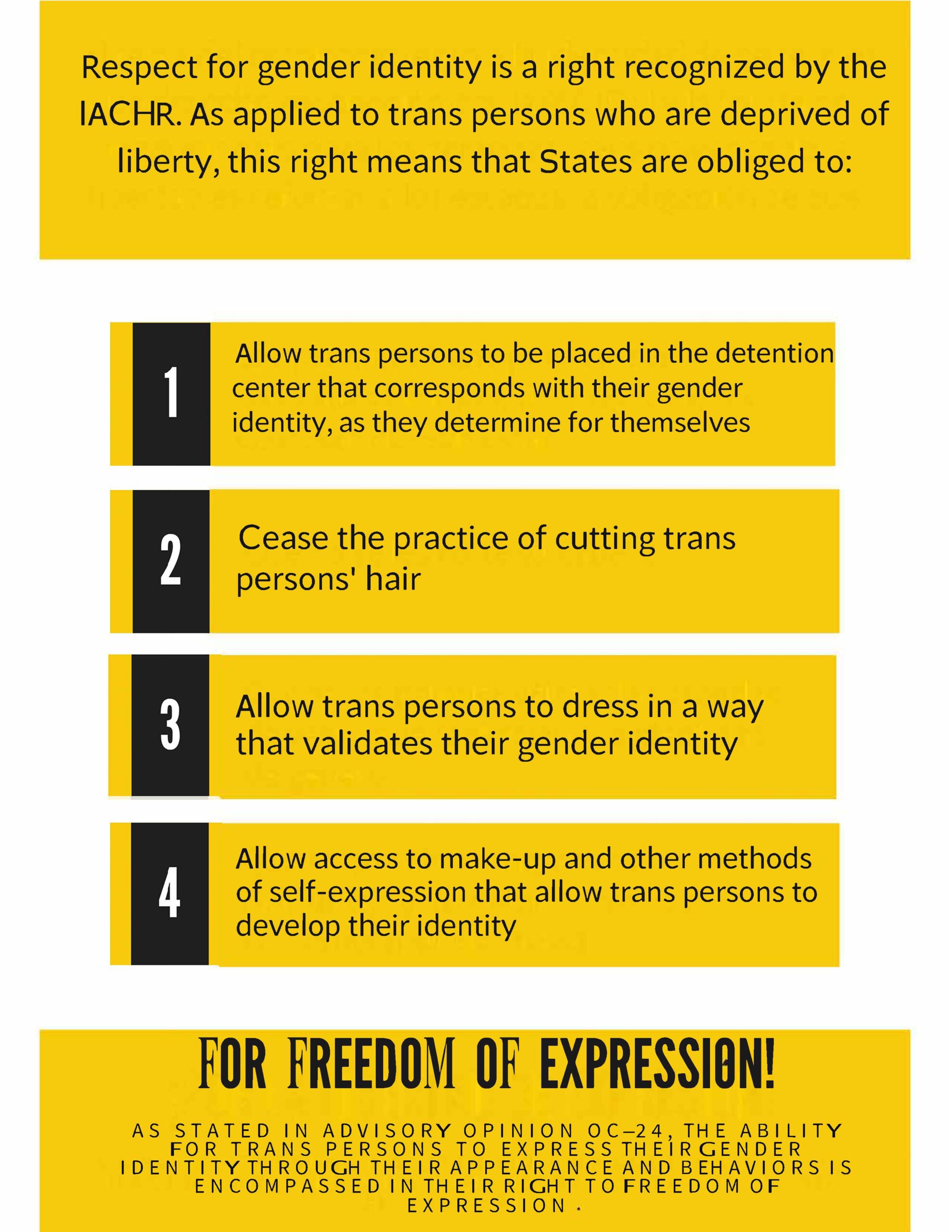“As trans persons, we are suffering aggression by guards in prisons” – Thematic hearing on the Situation of LGBTI Persons Deprived of Liberty in the Americas
On May 8, 2018, a thematic hearing on the human rights situation of LGBTI persons deprived of liberty in the Americas took place during the 168th Period of Sessions of […]

On May 8, 2018, a thematic hearing on the human rights situation of LGBTI persons deprived of liberty in the Americas took place during the 168th Period of Sessions of the Inter-American Commission on Human Rights (IACHR).
The hearing, requested by the Red Corpora en Libertad (a network of over 11 civil society organizations from the region) and with technical support from the Institute on Race, Equality and Human Rights (Race and Equality), sought to present evidence to the IACHR of the vulnerable situation of and systematic human rights violations committed against LGBTI persons deprived of liberty.
During the hearing, information was presented by Ari Vera Morales, the President of the Red Corpora en Libertad network and member of Almas Cautivas (Mexico), Bianka Rodriguez of COMCAVIS TRANS (El Salvador), Katalina Angel Ortiz of Red Comunitaria Trans (Colombia), and Mariel Ortega from Race and Equality. They described the high levels of violence and discrimination that LGBTI persons suffer from while in prison. The basic rights of incarcerated trans persons are frequently not recognized and they are kept detained in conditions that do not meet the minimum standards required to live with dignity with respect to healthcare, sanitation, and personal care, are not provided. Furthermore, an adequate respect for the family and personal relationships of LGBTI inmates are seldom respected, particularly when compared with the rights afforded to other detainees. According to the speakers at the hearing, this is because the norms regulate prisons and other detention centers in the region are based on hetero-cis-normative standards that do not take into account the rights, identities, and specific needs of LGBTI persons.
Katalina Angel of the Red Comunitaria Trans from Colombia expressed that prison management is guided by a “genital-ist” vision to determine the location of male and female detainees within detention centers. Therefore, trans women are frequently forced to dress in clothes socially considered to be “masculine,” are called by names different from the one they identify with, are forced to cut their hair, and are coerced into adopting behaviors according to the gender they have been assigned.
Furthermore, LGBTI persons deprived of liberty suffer from violence and acts of aggression that enjoy impunity. “With a month left for my sentence to be completed at the ‘Eron Picota’ prison in Bogota, Colombia, I was sexually assaulted by nine men. I was told that to keep my sentence from being extended, I should keep my mouth shut if I wanted to get out on time,” expressed Katalina during her presentation in the hearing. In light of this information, Commissioner Luis Ernesto Vargas Silva expressed great concern for situations similar to Katalina’s that are taking place at other detention centers in Colombia. He found this to be especially concerning because in 2011, the Colombian constitutional court issued sentence T072, guaranteeing the rights of LGBT persons deprived of liberty. Therefore, the information presented made the Commissioner question whether the ruling is being adequately implemented.
Ms. Angel also shared that trans persons’ bodies, in particular those of trans women, are used to smuggle and store illegal objects within detention centers. They are also not considered a “he” or a “she,” but are referred to as “it,” as a means to take away their humanity. These and other practices demonstrate that physical and emotional violence is systematically experienced on a daily basis by incarcerated trans persons.
Commissioner Flavia Piovesan, the Rapporteur on the Rights of LGBTI persons for the IACHR, declared that being deprived of liberty places trans persons in extreme situations of vulnerability. Commissioner Vargas Silva responded with great concern that Colombian detention centers often deny prisoners’ rights, especially if they identify as LGBTI.
Another concern raised during the hearing was the lack of importance given the conditions of LGBTI persons deprived of liberty, who tend to be forgotten internally in the public policies within the region. Therefore, the speakers called for the IACHR to comprehensively address this issue, even though past efforts by the IACHR have been meet with little response from regional governments. It was also agreed that the IACHR should continue to monitor the situation and follow-up through its integrated recommendation system which enables a direct line of communication between the Commission and the States.
To conclude, Commissioner Joel Hernandez reaffirmed the concerns raised during the hearing, encouraging those present to communicate situations directly to the IACHR in order to activate protection mechanisms and to do a thorough monitoring of the human rights situation of the trans population deprived of liberty. Likewise, Rapporteur Piovesan publicly expressed the Commission’s commitment to denounce all human rights violations and offered to issue communications on the current situation of LGBTI persons deprived of liberty, as well as promote best practices in relation to the advancement of rights in the region.


